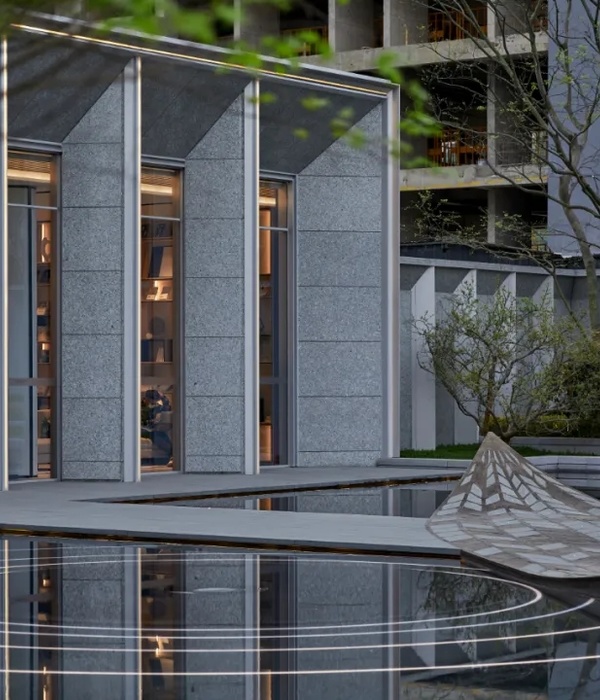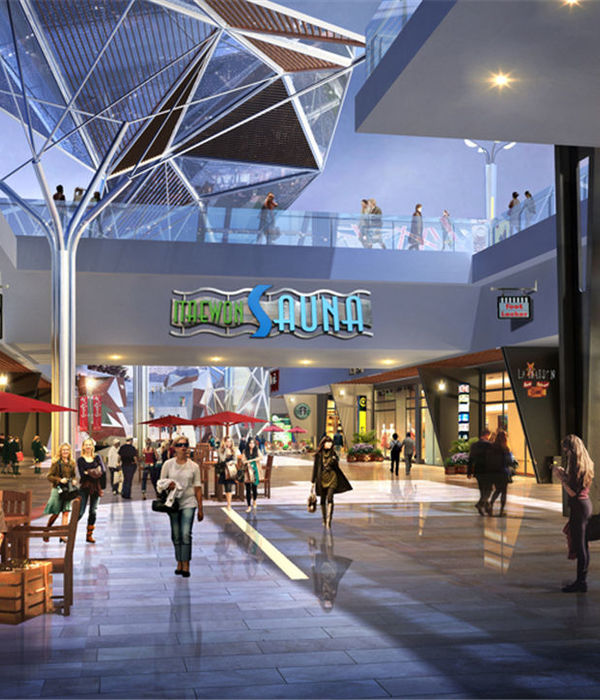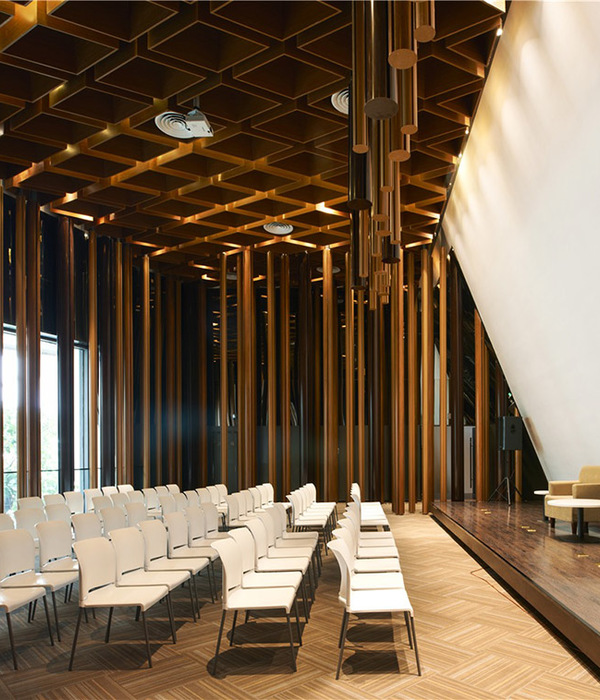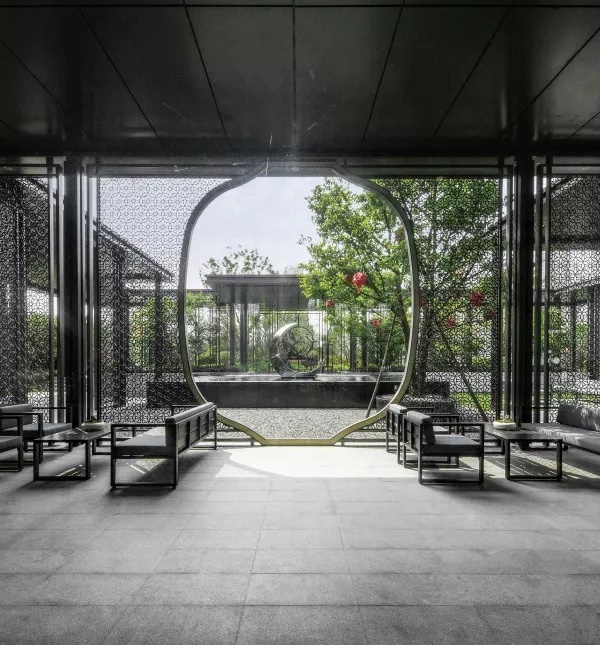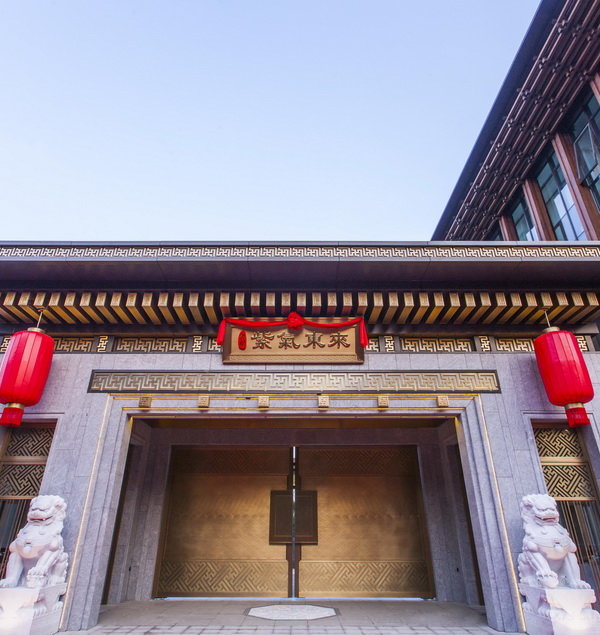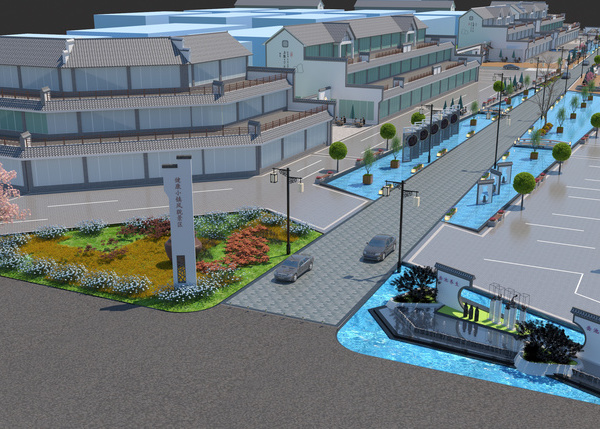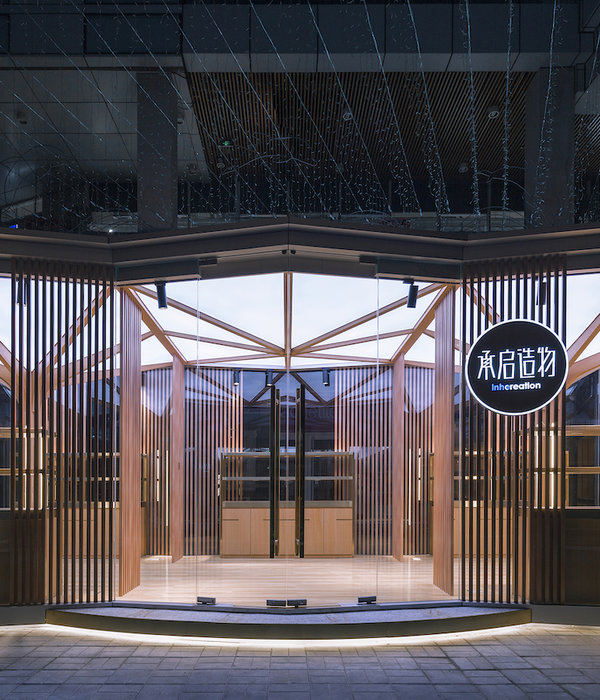- 项目名称:泉州万科里
- 设计方:广州市竖梁社建筑设计有限公司
- 公司网站:http:,,www.ateliercns.com,
- 联系邮箱:chenling@cicada-art.cn
- 设计周期:2013,08-2018,08
- 主创:钟冠球,宋刚,朱志远
- 项目地址:福建省泉州市丰泽区江滨路
- 建筑面积:29500平方米
- 合作方:施工单位:南京建工
- 客户:万科
泉州万科里在工业遗址保留及商业氛围活化之间取得了良好平衡,同时勾起了对泉州当地民居民风的感性回忆。
Quanzhou Vanke “Tang” Town has achieved a good balance between the preservation of industrial sites and the activation of commercial atmosphere, and at the same time evoked the emotional memories of the local residents in Quanzhou.
▼项目概览,project overview
泉州是古代“海上丝绸之路”的起点,宋元时期泉州刺桐港被中世纪世界著名旅行家马可波罗誉为“世界第一大港”,与埃及的亚历山大港齐名。市区分为古城区与新城区,古城区保留了大批融合了闽南、伊斯兰、阿拉伯、欧式风格的古建筑。泉州被誉为“一眼红城”,古城区呈现满城红砖的特质,非常壮观,各种保留完好的古代建筑经常出现在街头巷尾。
Quanzhou is the starting point of the ancient “Silk Road on the Sea”. In the Song and Yuan Dynasties, Quanzhou Erythrina Port was praised as “the largest port in the world” by Marco Polo, a world famous Traveler in the Middle Ages, as well as Alexandria Port in Egypt. The urban area is divided into old and new urban areas, which retain a large number of ancient buildings with the style of southern Fujian, Islam, Arabia and Europe. Quanzhou is known as a “red city at first sight”. The ancient city area presents the characteristics of red brick, which is very spectacular. A variety of well-preserved ancient buildings often appear in the streets and lanes.
▼俯瞰泉州,aerial view of Quanzhou city ©网络
中侨糖厂具有悠久的历史背景,在泉州有一定影响力,曾是福建经济支柱产业,产值占整个泉州的三分之一。改造前厂区旧建筑保存良好,具有一定规模,多为通高空间,其中留有水陆码头吊车廊架等特色构筑物,场地现场保留原生树木,且有若干棵树龄超过百年的榕树。项目西侧紧邻潘山,与晋江仅一路之隔,背山面江,享有独特景观优势。
Overseas Chinese Sugar Factory has a long historical background, has a certain influence in Quanzhou, was the pillar industry of Fujian economy, and its output value accounts for one third of the whole Quanzhou. Before the renovation, the old buildings in the factory area were well preserved, with a certain scale, mostly high-rise space. Among them, there were some special structures such as crane Gallery of land and water wharf, original trees were retained in the site, and some banyan trees over one hundred years old. The west side of the project is adjacent to Panshan, only one way away from Jinjiang River, with a unique landscape advantage.
▼项目鸟瞰,project aerial view
竖梁社的设计概念,从链接“旧糖厂保留区、裙楼车库、平台连廊”这三个基本功能展开,在保留原有厂区的空间肌理的原则下,新建建筑与旧建筑精确而和谐地共处,营造出尺度舒适的消费场景。核心保留区以一座传统石材建造的“厂长办公室”为中心,结合新建住宅区停车场的边界,巧妙的通过“增加小院子”的方式,打造凹凸不一的商业界面。在空间设计上,通过置入、衍生、对望的手法,使失去了活力的工业遗址再造重生。
▼轴测图,axon
The design concept of cnS is based on the three basic functions of linking the old sugar factory reserved area, skirt garage and platform corridor. Under the principle of retaining the space texture of the original factory area, the new building and the old building coexist precisely and harmoniously to create a comfortable consumption scene. The core reserve area is centered on a traditional stone construction “factory director’s office”, combined with the boundary of the parking lot in the newly built residential area, and ingeniously creates a concave and convex business interface by “adding small courtyards”. In space design, through the means of inserting, deriving and looking at each other, the lost vitality of industrial sites can be rebuilt.
▼临街立面,street facade
▼核心保留区以一座传统石材建造的“厂长办公室”为中心,the core reserve area is centered on a traditional stone construction “factory director’s office”
▼通过“增加小院子”的方式,打造凹凸不一的商业界面,to create a concave and convex business interface by “adding small courtyards”
▼立面细部,facade detail
走在万科里内部的时候,动线所见每一时刻都是不一样的,可以透过空间看到许多小型庭院的嵌套关系,行进中时而在院内,时而又在院外,结合休闲退台营造的看与被看的积极互动空间,使得整个体验层次丰富又充满趣味。
Walking inside Vanke “Tang” Town with moving line sees different moments. We can see the nested relationship of many small courtyards through the space. When walking in the courtyard, sometimes in the courtyard, sometimes out of the courtyard, the active interaction space created by combining leisure stage with being seen makes the whole experience level rich and interesting.
▼层次丰富的动线,a multi-layered circulation
▼庭院细部,courtyard
与此同时,设计师保留沿用了从前运输甘蔗(制糖原料)的廊架元素衔接弥合了滨江路与场地的巨大高差,强调了主要商业厅堂与游览线路的轴线关系,明确了主要广场空间的进入秩序,同时也解决了住区与商业区的空间衔接问题。
At the same time, the designer retained the gallery elements that used to transport sugarcane (raw materials for sugar making) to bridge the huge height difference between Binjiang Road and the site, emphasized the axis relationship between the main business halls and tour routes, clarified the entry order of the main square space, and also solved the space connection problem between residential and commercial areas.
▼原先用于运输的廊架被保留下来,the gallery elements that used to transport sugarcane are retained in the project
▼夜间视角,night view
老糖厂原本就生长着大量的芒果树,设计师将它们保留下来,并依据空间序列的需求将它们重新移植到恰当的地方,树龄超长的老榕树,则采取保留保护的措施,让它们在原位置继续生长,见证万科里光阴的故事。
Old sugar factories originally grew a large number of mango trees. Designers kept them and replanted them to the right place according to the needs of spatial sequence. Old banyan trees with over-old trees took measures to preserve and protect them, so that they could continue to grow in situ and witness the story of Vanke “Tang” Town’s time.
▼建筑立面与葱郁的树木形成对话,the building facade dialogues with the lush green trees
老糖厂保存下来的历史文物大烟囱成为了万科里的地标,业主斥巨资将烟囱原封不动地移动到现有的位置,中间因为发生小插曲:烟囱意外倒地破碎,业主又不惜再投入费用进行仔细修复,才得以让民众看到它原本的雄姿。
The historic chimney preserved by the old sugar factory became the landmark of Vankori. The owner spent a lot of money to move the chimney intact to the existing position. In the middle, because of a small episode: the chimney fell down unexpectedly and was broken, the owner spared no expense to repair it carefully, so that the public could see its original grandeur.
▼老糖厂历史悠久的烟囱,the historic chimney from the old sugar factory
繁复的“砖砌法”体现出设计师的巧思与匠心,设计师通过砖块方向的变换、镂空的砌法设计,设计出不同造型的立体几何立面,在保持立面元素统一的情况下兼顾了室内采光。糖厂的南北两侧受高层楼盘遮挡,东西向的阳光照射带来优美的光影变幻,每逢清晨或傍晚,镂空的墙面折射出斑驳的影子,引发人无穷的怀旧情思。
Complex “bricklaying method” reflects the ingenuity and ingenuity of the designer. The designer designs three-dimensional geometric facades of different shapes by changing the direction of bricks and hollow-out masonry design, taking into account indoor lighting while maintaining the unity of facade elements. The north and south sides of sugar mills are covered by high-rise buildings, and the East-West sunshine brings beautiful changes of light and shadow. Every morning or evening, the hollow walls reflect mottled shadows, triggering endless nostalgia.
▼以“砖砌法”构建的立面,the facade constructed with a “bricklaying method”
▼砖块方向的变换和镂空的设计形成不同造型的立体几何立面,the three-dimensional geometric facades of different shapes built by changing the direction of bricks and hollow-out masonry design
▼夜景,night view
▼场地剖面透视图,sectional perspective of the site
▼尺度控制,scale controlling
▼平面图1,plan 1
▼平面图2,plan 2
▼立面图,elevation
▼局部剖面图,partial section
▼局部剖面图,partial section
▼厂长办公室立面图,office elevation
▼厂长办公室剖面图,office section
{{item.text_origin}}




